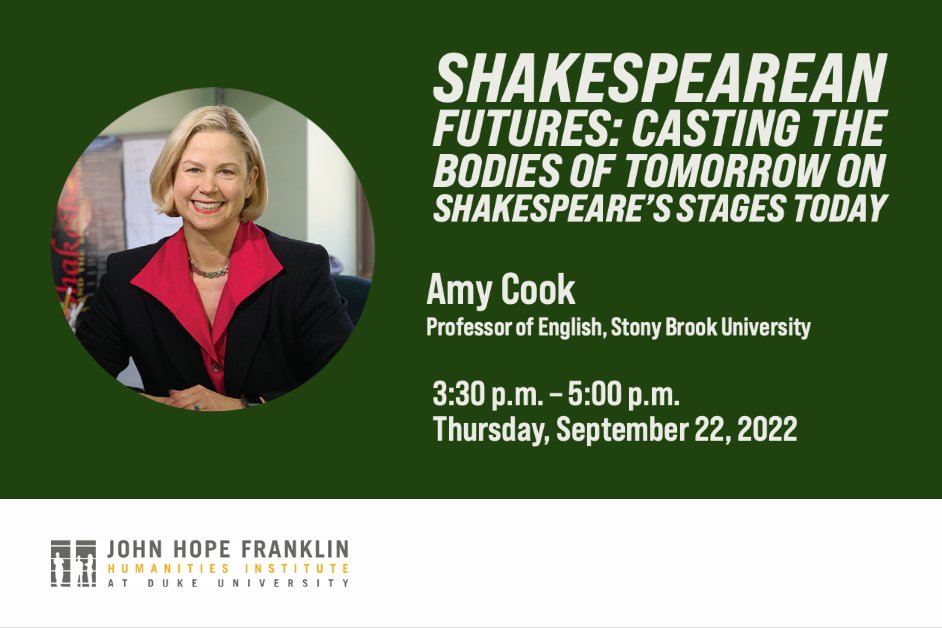Shakespearean Futures: Casting the Bodies of Tomorrow on Shakespeare's Stages Today

"Shakespearean Futures: Casting the Bodies of Tomorrow on Shakespeare's Stages Today"
An actor walks on stage to play Lear, or Beatrice or Henry and we immediately begin making judgments about the story to come based on the actor selected. We may wonder to what extent the actor's race or gender or body type will be relevant (and in what way), but we see it. In productions of Shakespeare today, directors are using the bodies of the actors to tell us how we are to understand this old story now. Directors can use casting to reflect or mirror the world in which we live or the director can cast a body counter to our expectations in such a way that we are invited to challenge our categories for ruler, lover, villain. I will examine the casting and staging of key contemporary productions of Shakespeare to argue that through these counter castings we can see the future we are grappling with, a future that's paradoxically hyper-attentive to the body while destabilizing the categories of race/ethnicity, gender, and even the idea of the self. These productions of Shakespeare are using casting to tell the future.
Bio:
Amy Cook is a Professor of English at Stony Brook University. She specializes in the intersection of cognitive science and theories of performance with particular attention to Shakespeare. She has published Shakespearean Futures: casting the bodies of tomorrow on Shakespeare's stages today (Cambridge Elements 2020), Building Character: The Art and Science of Casting (Michigan 2018), Shakespearean Neuroplay: Reinvigorating the Study of Dramatic Texts and Performance Through Cognitive Science (Palgrave 2010), and co-edited Theatre, Performance and Cognition: Languages, Bodies and Ecologies (Methuen 2016). She has published in SubStance, Theatre Journal, Journal of Dramatic Theory and Criticism, and TDR. She has contributed chapters to many edited volumes, including, The Oxford Handbook of Dance and Theater (2015), The Oxford Handbook of 4E Cognition (2018), The Routledge Companion to Theatre, Performance, and Cognitive Science, (2018), The Cambridge Companion of Shakespeare's Language (2019), and The Cambridge Companion to Theatre and Science (2020). She received her Ph.D. from University of California, San Diego and her B.A. from University of Michigan.






